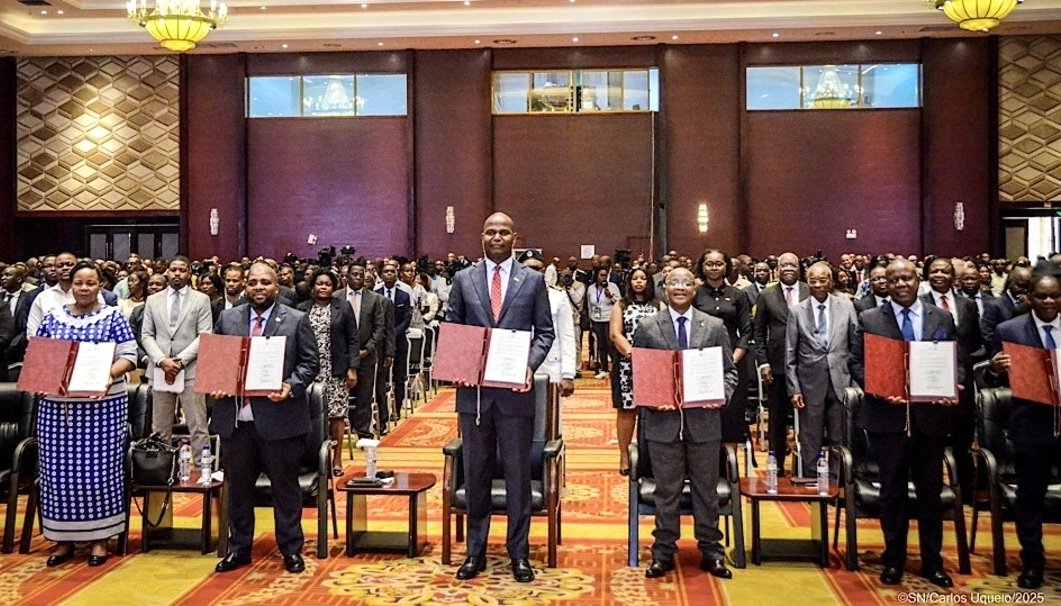With the country reeling from years of political tension and a brutal insurgency in the north, Mozambican President Daniel Chapo made a heartfelt appeal last Friday: put Mozambique first, above all differences and turn to prayer as a path to peace.
Speaking in Maputo during a meeting with representatives of the “Mozambique First” initiative – a national peace campaign led by the Christian Council of Mozambique (CCM) – Chapo endorsed a nationwide “collective prayer for peace,” set for 28 August.
The symbolic event will include a minute of silence at 6pm local time (1600 GMT), intended as an act of national unity and reconciliation.
“If each Mozambican understands that, before our differences – be they ethnic, cultural, religious, political or any other – we put Mozambique first, I am absolutely certain that the peace and reconciliation we all want will be easier to achieve,” said Chapo.
He noted that prayer should be inclusive, calling on all citizens to participate, regardless of religious belief.
But as the country prepares for this moment of reflection, a deeper question lingers beneath the surface: can prayer alone resolve the complex political and security challenges Mozambique faces?
Mozambique’s recent history is marred by conflict.
After decades of civil war that ended in 1992, fragile peace agreements have repeatedly been tested by political rivalries – particularly between the ruling FRELIMO party and the opposition RENAMO and, lately, the National Alliance for a Free and Autonomous Mozambique led by Venâncio Mondlane.
Sporadic violence and contested elections have sown deep mistrust.
More recently, the country has been battling a violent insurgency in the northern province of Cabo Delgado since 2017.
The Islamist extremist group locally known as Al-Shabaab (unrelated to the Somali group of the same name) has wreaked havoc, displacing over a million people and killing thousands.
The country has also experienced anti-government protest since the October 2024 disputed presidential elections, which Mondlane claims to have won ahead of Chapo.
Despite military interventions, including regional deployments and private security forces, the conflict remains unresolved.
While many welcomed the initiative as a step toward moral renewal, others questioned its inclusivity.
Critics point out that the Christian Council’s campaign largely reflects the views of Protestant churches, potentially sidelining Muslims, traditional belief systems and secular citizens.
“The call to prayer is powerful but if it becomes a substitute for real dialogue, political accountability and structural reform, it risks becoming symbolic at best – or alienating at worst,” said political analyst Donald Porusingazi.
Mozambique is indeed a deeply religious country, with Christianity and Islam being the dominant faiths.
Porusingazi argued that although the 28 August prayer event would offer a moment of national pause, deep-rooted issues – from economic marginalisation and youth unemployment to the erosion of democratic institutions – could not be solved through spirituality alone.
“Prayer may unite people in a symbolic act of hope but for Mozambique’s wounds to truly heal, faith must go hand in hand with action,” he said.
Source:Africa Publicity








